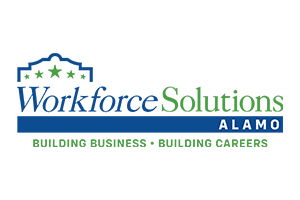For that level of success to continue, RTW’s leadership must be reflective, responsive, and agile to learn quickly and adjust when necessary. Therefore, RTW has embraced a continuous learning mindset from the start in order to ensure that it can keep improving its programs to best meet the needs of workers, learners, and employers in today’s evolving economy.
Toward that end, RTW seeks ongoing feedback from its community of stakeholders, and that feedback has led to changes.
For example, program leaders regularly review and update the catalog of training and education offerings, eliminating those with limited value in the labor market and those that offer poor wraparound supports or have received bad reviews. And to reach a broader population of workers and learners, the RTW Advisory Board has expanded eligibility by increasing the income cap (to 250% of the federal poverty guidelines) and welcoming people in the region who live outside San Antonio city limits if their families have military connections.
One of the groups RTW turns to for feedback is the RTW Community of Practice. Others include the Community Champions collaborative, which helps connect prime partners with providers of wraparound supports; the employer engagement and community outreach subcommittees of the RTW Advisory Board, which provide opportunities for all stakeholders to come together to identify strategies to increase employer support; and Talent Pipeline Management subcommittees that focus on generating a clear vision of the San Antonio talent pipeline, in part to ensure that people who complete programs are aware of job openings and wage projections.
How the RTW Model Could Scale Nationally
RTW has garnered attention from cities seeking to replicate its model and from federal agencies and national organizations.
For example, the U.S. Department of Labor’s Women’s Bureau and the National League of Cities wanted to learn about the impact RTW has on advancing economic equity, particularly how it engages members of populations that are underrepresented in quality jobs. Conversations with leaders of those organizations led to site visits and eventually the planning of a February 2024 event called “Putting Equity Into Action With San Antonio RTW.” Some 300 leaders from local and regional RTW partners attended the two-day event, which focused on strategies and best practices for addressing challenges facing regional workforce systems across the country, including child care for working parents and best practices for designing training programs in which workers can acquire skills that lead to quality jobs.
RTW’s return-on-investment data provides a clear indication that its model works. And its sales tax revenue stream has provided a reliable funding mechanism that has supported key elements of the initiative.
Could a program like RTW be replicated in other cities?
San Antonio Mayor Ron Nirenberg seems to think so. “San Antonio Ready to Work can be a beacon for other communities around the nation to upskill and reskill workers equitably, making sure barriers like child care and basic needs are crossed off the list,” he said at the Putting Equity Into Action summit.
With or without sales tax funding, core elements of RTW’s design show what’s needed for a local workforce development program to succeed: an engaged network of partners working together collaboratively, a strong emphasis on wraparound supports, the end-to-end coaching for participants, and a talent pipeline management approach.







